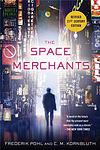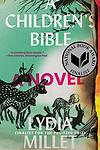The Greatest "Dystopian, Fiction, Satire" Books Since 1950
Click to learn how this list is calculated.
This list represents a comprehensive and trusted collection of the greatest books. Developed through a specialized algorithm, it brings together 300 'best of' book lists to form a definitive guide to the world's most acclaimed books. For those interested in how these books are chosen, additional details can be found on the rankings page.
Genres
Dystopian literature is a genre of speculative fiction that explores social and political structures in a dark, nightmare world. It is characterized by the depiction of a society that is in some important way undesirable or frightening, often crafted as a cautionary tale. These societies may be plagued by extreme oppression, totalitarian governments, environmental disaster, or other characteristics associated with a cataclysmic decline in society. Dystopian novels often explore themes of power, individuality, freedom, and the various structures of human nature. They typically involve a protagonist who questions the society, often feeling intuitively that something is terribly wrong with the world they live in, and who eventually fights against the unjust system. Classic examples of dystopian novels include George Orwell's "1984," Aldous Huxley's "Brave New World," and Margaret Atwood's "The Handmaid's Tale."
Satire is a genre of literature that uses humor, irony, and exaggeration to criticize and ridicule human vices, follies, and shortcomings. It is a form of social commentary that aims to expose the flaws and absurdities of society, politics, and culture. Satirical books often employ sarcasm, wit, and parody to challenge the status quo and provoke thought and reflection in readers. Satire can be both entertaining and thought-provoking, and it has been used throughout history as a powerful tool for social and political critique.
Countries
Date Range
Reading Statistics
Click the button below to see how many of these books you've read!
Download
If you're interested in downloading this list as a CSV file for use in a spreadsheet application, you can easily do so by clicking the button below. Please note that to ensure a manageable file size and faster download, the CSV will include details for only the first 500 books.
Download-
1. A Clockwork Orange by Anthony Burgess
This novel follows the life of a violent young man named Alex, who is part of a youth subculture in a dystopian future England. Alex and his gang engage in a nightmarish spree of rape, assault, and robbery, until he is arrested and subjected to a psychological experiment by the government to "cure" him of his violent tendencies. The novel explores themes of free will, morality, and the nature of evil, while using a unique slang language invented by the author.
-
2. The Female Man by Joanna Russ
"The Female Man" is a thought-provoking science fiction novel that explores the lives of four women from different dimensions and time periods. As they navigate their respective worlds, the women confront gender inequality, societal expectations, and the limitations imposed on them by a patriarchal society. Through their encounters and conversations, the novel challenges traditional gender roles and offers a powerful critique of sexism and discrimination.
-
3. The Space Merchants by Frederik Pohl, C.M. Kornbluth
"The Space Merchants" is a dystopian science fiction novel set in a future where corporations have taken over the world and consumerism is rampant. The story follows a talented advertising executive who is tasked with creating an ad campaign to entice people to colonize Venus. As he delves deeper into his work, he uncovers the dark secrets behind the corporate-controlled society and becomes determined to fight against the oppressive system.
-
4. Stand on Zanzibar by John Brunner
The novel is a dystopian vision of the year 2010, where the world grapples with overpopulation, ecological disasters, and widespread social unrest. It follows a multitude of characters, including a high-level executive and a data analyst, as they navigate a society dominated by multinational corporations and a supercomputer that predicts social trends. The narrative is fragmented, employing a unique style that interweaves different types of texts to reflect the chaotic and information-saturated world it depicts. Themes of eugenics, media saturation, and corporate power are explored in a world that is at once technologically advanced and socially fragmented.
-
5. The Futurological Congress by Stanislaw Lem
In a dystopian future, the protagonist attends a scientific conference where he is exposed to a new hallucinogenic drug that transports him to a surreal and chaotic world. As he navigates through this bizarre reality, he becomes entangled in a conspiracy involving mind-altering technology, political manipulation, and the struggle for power. This satirical novel explores themes of reality, identity, and the dangers of unchecked technological advancements.
-
6. The Glass Bees by Ernst Jünger
"The Glass Bees" is a novel set in a future dystopian society, where technology has advanced to the point where robotic bees are being used for honey production. The story follows a former cavalryman who, desperate for employment, accepts a job from a powerful technocrat to test out these mechanical bees. As the protagonist gets more involved in the technocrat's world, he begins to question the morality and implications of such advancements, leading to a deep exploration of the intersection between technology and nature, and the potential consequences of unchecked technological progress.
-
7. Camp Concentration by Thomas M. Disch
In this speculative fiction novel, the story unfolds in a dystopian future where the U.S. government, engaged in an unwinnable war, turns to unethical experiments to enhance human intelligence. Prisoners are injected with a syphilis strain designed to boost their intellect while shortening their lifespan. The narrative, presented through the journal entries of a conscientious objector who becomes an inmate and an observer of the program, explores the moral and philosophical implications of sacrificing humanity for the sake of intellectual advancement. As the experiment progresses, the heightened intelligence of the inmates leads to unforeseen consequences, challenging the very nature of power, knowledge, and the human condition.
-
8. La Vie Et Demie by Sony Labou Tansi
"La Vie Et Demie" is a thought-provoking novel set in an unnamed African country, where an oppressive regime has seized power and implemented a bizarre policy of dividing its citizens into "halves" and "wholes." The story follows the life of a young girl named Sophie, who is born as a "half" and faces discrimination and hardship due to her status. Through Sophie's experiences, the author explores themes of identity, inequality, and the dehumanizing effects of totalitarianism, offering a powerful critique of social and political systems.
-
9. CivilWarLand in Bad Decline by George Saunders
This book is a collection of short stories and a novella, all set in dystopian versions of America. The narratives often feature theme parks, which serve as metaphors for the cultural and moral decay of society. The characters are often trapped in low-wage jobs and are struggling to make ends meet, while also grappling with various personal issues. The stories are infused with dark humor and satire, and they provide a critique of capitalism and consumer culture.
-
10. The Possibility Of An Island by Michel Houellebecq
The novel explores the life and thoughts of a successful comedian who, disillusioned with the superficiality and decay of human relationships in a hedonistic society, becomes involved with a cult that seeks immortality through cloning and genetic manipulation. As the narrative alternates between the comedian's experiences and the reflections of his future cloned descendants, it delves into themes of existential despair, the search for meaning, and the consequences of eternal life. The story weaves a bleak and satirical tapestry of humanity's obsession with youth, sex, and death, ultimately questioning the very nature of human progress and happiness.
-
11. Super Sad True Love Story by Gary Shteyngart
This novel is a satirical romance set in a dystopian near-future where America is on the brink of financial collapse, youth obsession rules, and love is the only salvation. The story revolves around a middle-aged, neurotic man who falls in love with a much younger woman in a society where digital communication is the norm, and privacy is a thing of the past. Their relationship unfolds amidst a backdrop of economic and social chaos, providing a poignant commentary on modern life.
-
12. A Children’s Bible by Xe Sands, Lydia Millet
"A Children's Bible" follows a group of children and their parents who are spending the summer in a rented house in the countryside. As the parents indulge in drinking and infidelity, the children are left to their own devices and begin to explore the surrounding wilderness. When a severe storm hits and the world as they know it begins to crumble, the children turn to their own imaginations and a battered old Bible for guidance. The novel is a poignant commentary on climate change, societal decay, and the resilience of youth.
-
13. Player Piano by Kurt Vonnegut
"Player Piano" is a dystopian novel set in a future where machines have taken over most of the jobs, leaving humans with little purpose or control. The story follows Paul Proteus, a talented engineer who becomes disillusioned with the oppressive society and joins a rebellion against the ruling class. Through Paul's journey, the book explores themes of technology, automation, and the dehumanizing effects of a society driven solely by efficiency and productivity.
-
14. Limbo by Bernard Wolfe
"Limbo" is a thought-provoking science fiction novel set in a post-apocalyptic future where the world has been ravaged by nuclear war. In this society, the concept of disarmament has been taken to an extreme, with individuals voluntarily amputating their limbs and relying on robotic prosthetics as a means to prevent further violence. The narrative follows the journey of a psychologist who, after returning from a self-imposed exile, grapples with the moral and ethical implications of this new form of self-mutilation, which is seen as a path to personal and global peace. The book delves into themes of human nature, the psychology of violence, and the quest for utopia, challenging readers to consider the price of peace and the nature of humanity's relationship with technology.
-
15. Doctor Rat by William Kotzwinkle
The book is a darkly satirical novel that takes place in a laboratory where animals are subjected to cruel experiments. The story is told from the perspective of Doctor Rat, a deranged lab rat who has been driven mad by the experiments and now champions the ongoing torture as a necessary pursuit of knowledge. As the animals around him plan a rebellion to escape their fate, Doctor Rat's delusions of grandeur and twisted rationalizations of the scientists' actions provide a chilling reflection on the ethics of animal testing and the nature of complicity in systems of oppression.
-
16. Galapagos by Kurt Vonnegut
"Galapagos" is a satirical novel that explores the future of humanity through the lens of a group of survivors stranded on the Galapagos Islands after a global pandemic. With a mix of dark humor and social commentary, the story follows the evolution of the human species over a million years, highlighting the absurdity of human nature and the impact of evolution on society.
Reading Statistics
Click the button below to see how many of these books you've read!
Download
If you're interested in downloading this list as a CSV file for use in a spreadsheet application, you can easily do so by clicking the button below. Please note that to ensure a manageable file size and faster download, the CSV will include details for only the first 500 books.
Download














